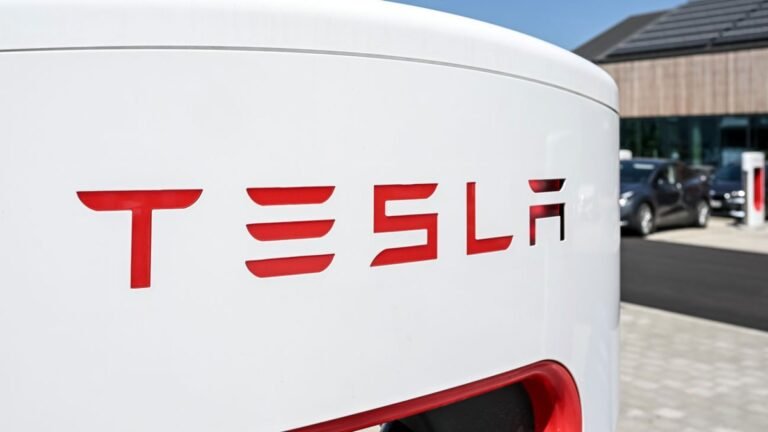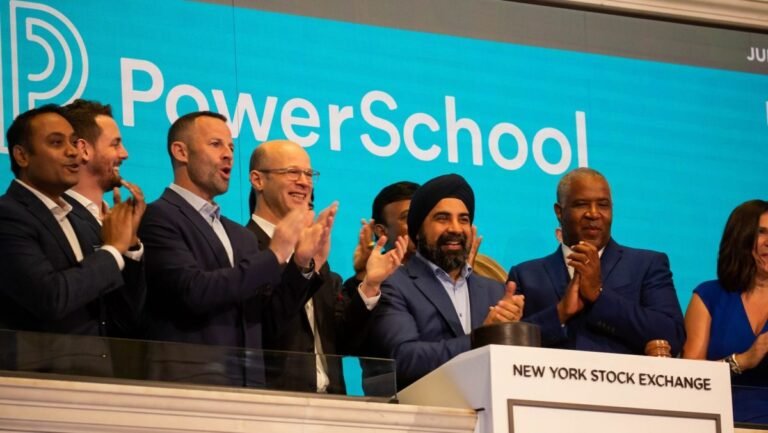
There has been a silly amount of drama in the run-up to Tesla‘s annual shareholder meeting on Thursday.
It will also hold a vote whether the company will change the location where it is incorporated from Delaware to Texas.
Some of Tesla’s biggest boosters are calling on the company’s “retail army” of shareholders to vote in favor of both, but with special focus on Musk’s compensation.
“A deal is a deal,” Tesla posted to its CEO’s social media platform X.
At the very least, it’s a primer for the legal battles that are sure to continue after Thursday’s vote.

It’s been described as “the largest merger in African e-commerce” by both companies.
When the planned merger was first announced, the B2B e-commerce players were active in eight countries.
These recent moves suggest the new entity will likely serve fewer than the 450,000 retailers quoted during the merger announcement.
As the merger nears completion, the CEOs from both companies will continue as full-time executives but function in different roles.
“Regarding our merger with MaxAB, it is important to state that this is progressing as expected and in accordance with the initial terms.

Human Native AI is a London-based startup building a marketplace to broker such deals between the many companies building LLM projects and those willing to license data to them.
Human Native AI also helps rights holders prepare and price their content and monitors for any copyright infringements.
Human Native AI takes a cut of each deal and charges AI companies for its transaction and monitoring services.
Human Native AI announced a £2.8 million seed round led by LocalGlobe and Mercuri, two British micro VCs, this week.
It is also a smart time for Human Native AI to launch.

Cloud-based education software vendor PowerSchool is being taken private by investment firm Bain Capital in a $5.6 billion deal.
The announcement comes amid a swathe of take-private deals led by private equity firms seeking a bargain on under-performing enterprise software firms.
Founded in 1997, PowerSchool is a web-based platform that helps educational institutions manage areas of their operations such as enrollment, grades, attendance, and communication with parents and students.
The company went public on the New York Stock Exchange (NYSE) in 2021, after previously been acquired by private equity firms Onex and Vista.

But look beyond the hype and high-profile deals like the one between OpenAI and PwC last week, and you’ll see that the world is already years into using customer-facing, no-code AI tools for extracting information and working faster.
The deal underscores not just the opportunity around increasing demand for AI in the B2B market, but also a wider trend in enterprise IT.
Eigen and Sirion are not disclosing the financial terms of the deal, but below is relevant context that tells some of the story.
London-based Eigen is led and co-founded by Dr Lewis Liu, an Oxford PhD who studied both art and physics.
It says that it works with over 250 large enterprises manages more than 7 million contracts worth $800 billion.

Amazon is acquiring some assets of MX Player, but not the entire firm, which also counts Tencent among its backers.
TechCrunch reported in February last year that Amazon and MX Player were engaging for a deal.
MX Player is especially popular among such demographic groups, and Amazon’s e-commerce service has long only been popular among the urban city consumers.
An Amazon spokesperson confirmed it has agreed to purchase some assets of MX Player after publication of this story.
Following the acquisition, Times Internet made strategic moves to transform MX Player from a local video playback app into a comprehensive video streaming platform.

For Informatica investors, it was the opposite: The price was too low to warrant selling — they wanted more, more, more — and their stock also dropped, down a similar amount over the same period.
The biggest by far of that bunch was the $28 billion deal to buy Slack at the end of 2020.
Informatica is also far smaller than Salesforce, making its potential revenue bump to Marc Benioff’s company modest.
The ace up Informatica’s sleeve is that while its total revenue growth is slow, one important segment of its revenues is expanding quickly.
If we were to compare Informatica cloud net-new ARR that it expects this year instead, the percentage becomes even smaller.

Sources tell us that Lacework — a cloud security startup that was valued at $8.3 billion post-money in its last funding round — is in talks to be acquired by another security player, Wiz, for a price of just $150–$200 million.
Wiz — valued at around $10 billion — is one of them.
The company is positioning itself as a one-stop-shop for all things cloud security en route to its IPO.
Earlier this month Wiz acquired Gem Security for $350 million, and it sounds like the M&A will not end with Laceworks.
We are always exploring compelling M&A opportunities that will enhance both our technological capabilities and business expansion, as we strive to build the world’s leading cloud security platform.”

Noname Security, a cybersecurity startup that protects APIs, is in advanced talks with Akamai Technologies to sell itself for $500 million, according to a person familiar with the deal.
Noname was co-founded in 2020 by Oz Galan and Shay Levi and is headquartered in Palo Alto but has Israeli roots.
The startup raised $220 million from venture investors and was last valued at $1 billion in December 2021 when it raised $135 million in a Series C led by Georgian and Lightspeed.
While the sale price is a significant discount from that valuation, the deal as it currently stands would be for cash, the person said.
In February, Israeli news outlet Calcalist reported that Noname was in negotiations with several potential buyers, including Akamai.

Model N, a platform used by companies such as Johnson & Johnson, AstraZeneca, and AMD to automate decisions related to pricing, incentives, and compliance, is going private in a $1.25 billion deal.
Vista Equity Partners is doling out $30 per share in the all-cash transaction, representing a 12% premium on Friday’s closing price, and 16% on its 30-day average.
Founded in 1999, Model N’s software integrates with various data sources and internal systems to help companies analyze trends, pricing efficacy, market demand, and more.
The platform is typically used in industries such as pharmaceuticals and life sciences, where there may be complex pricing structures, and where regulatory or market changes can impact business.
However, its valuation has generally hovered below the $1 billion market for the past six months, sparking Vista Equity Partners into action today.













